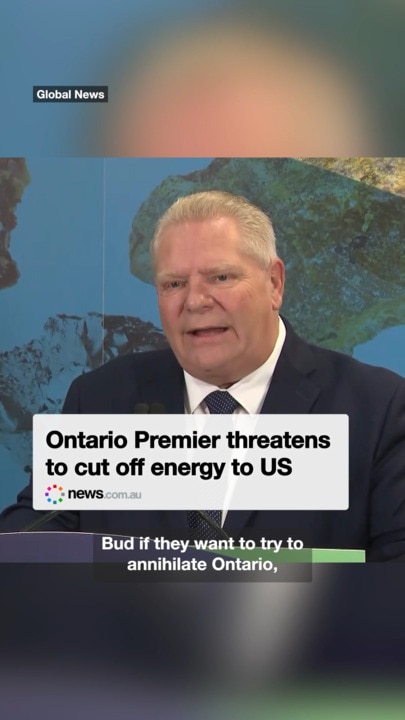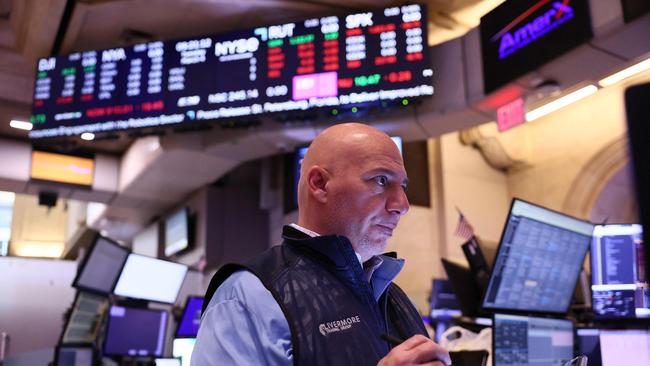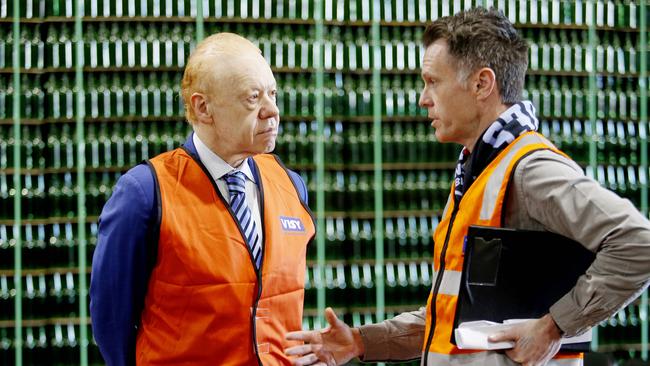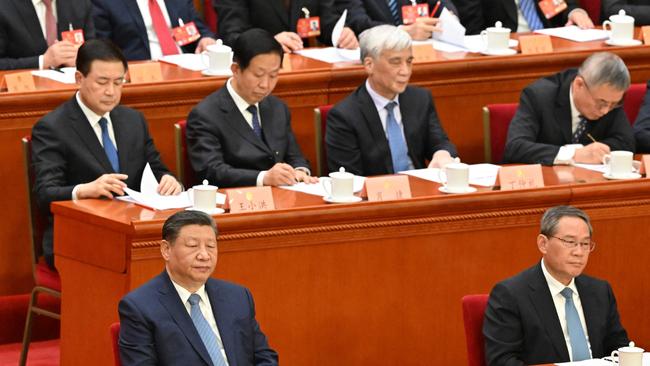
Suddenly, Terbium and other rare earths have become potential trade weapons. The US economic impact of the DOGE government spending cuts are deepened because US companies are also slashing their costs in response to higher tariffs and the withdrawal of surplus labour created by the expatriation of illegal migrants.
This will accelerate the use of enhanced computer technology, led by artificial intelligence, but it will also create community apprehension and boost demand for rare earths where China dominates supply.
Tariffs, instead of being imposed in an orderly way to boost the US industrial base, are being used as penalties to stop drug imports.
The consumer-led US economy may slow, so the US bond rates have fallen. But later there will be pressures to lift interest rates because, despite current management efforts, costs and prices will rise as a result of tariffs.
And consumer spending will get a boost to pay higher prices because money raised from those tariffs and spending cuts will be distributed via tax cuts.

Then there is the Ukraine fallout. Europe now looks to spend vast sums on defence, most of which will be borrowed, boosting global bond rates.
In defence, Australia will be required by the US to undertake much larger expenditures, which will trigger much greater government borrowing and will make many of the current election promises hot air. US companies will borrow to expand manufacturing.
The current US bond market is related to the inevitable initial economic slowdown, but later it will be linked to those wider actions that will need to be funded in the bond market.
These pressures will erupt on share markets in a spasmodic fashion, so look for big fluctuations, but the uncertainty being created by so much happening at the same time is not good for US equity values that were initially boosted by a Trump plan that last November seemed much clearer. Back then, Trump aimed to create substantial investments in local manufacturing and foster lower government spending and tax reductions.
The Trump supporters say that the only way to achieve the required fundamental reorientation of the US economy was by creating initial chaos, which would leave the opponents of change fighting on too many fronts.
Supporting that view, many large corporates, including Anthony Pratt’s Visy, are planning very large US capital investments to take advantage of the new technology and a better US business environment.

They believe the chaos will pass. But the US will need to lift the supply of terbium and other rare earths from countries other than China.
Germany entered the First World War without oil. Japan was fighting in part to secure oil. Trump is starting a trade war with China, even though the US is dependent on the Middle Kingdom for the 2025 equivalent of oil – terbium and other rare earths.
The US wants peace in Ukraine in part to gain supplies of terbium and other rare earths. Rare earths are not scarce, but on present technology they do require major investment in treatment facilities.
These rare earths have become vital parts of modern technology. The envisaged productivity gains that enterprises expect won’t happen unless they are available.
Terbium is one of the key rare earths, and almost all US supplies comes from China. The US will have stocks, but unless the new supplies are quickly generated the US will depend on China to operate as a leader in the new world of enhanced technology. And yet it is engaged in a China trade war where China has the ultimate weapon.

Here are just some of the terbium applications.
• Wind turbines, electric vehicles, and hard drives need magnets that require small quantities of terbium mixed with dysprosium and neodymium.
• Fluorescent lamps, LEDs, and TV screens require terbium to produce green colours.
• Terbium compounds are used in the boom area of nuclear medicine and applied in sonar systems, sensors, and speakers.
In Ukraine, we have seen long-range rockets and drones used to devastating effect. Most required terbium and other rare earths.
Australia should be promoting itself as an alternative to Ukraine as a major US source of rare earths. We already have major operations being constructed, but deep involvement in the treatment of terbium and other rare earths in Australia will require very different energy policies to those being embraced by the current government.
If the proposed Ukraine peace settlement does not take place then Australia may be required to do much more and, conceivably, the US may demand that if Australia wants to process locally it must provide energy at global prices rather than the inflated energy prices currently planned.




This is not a simple trade war. Too many major events are happening at once. The repercussions will shape the world in ways we never anticipated when Donald Trump became US President in November.